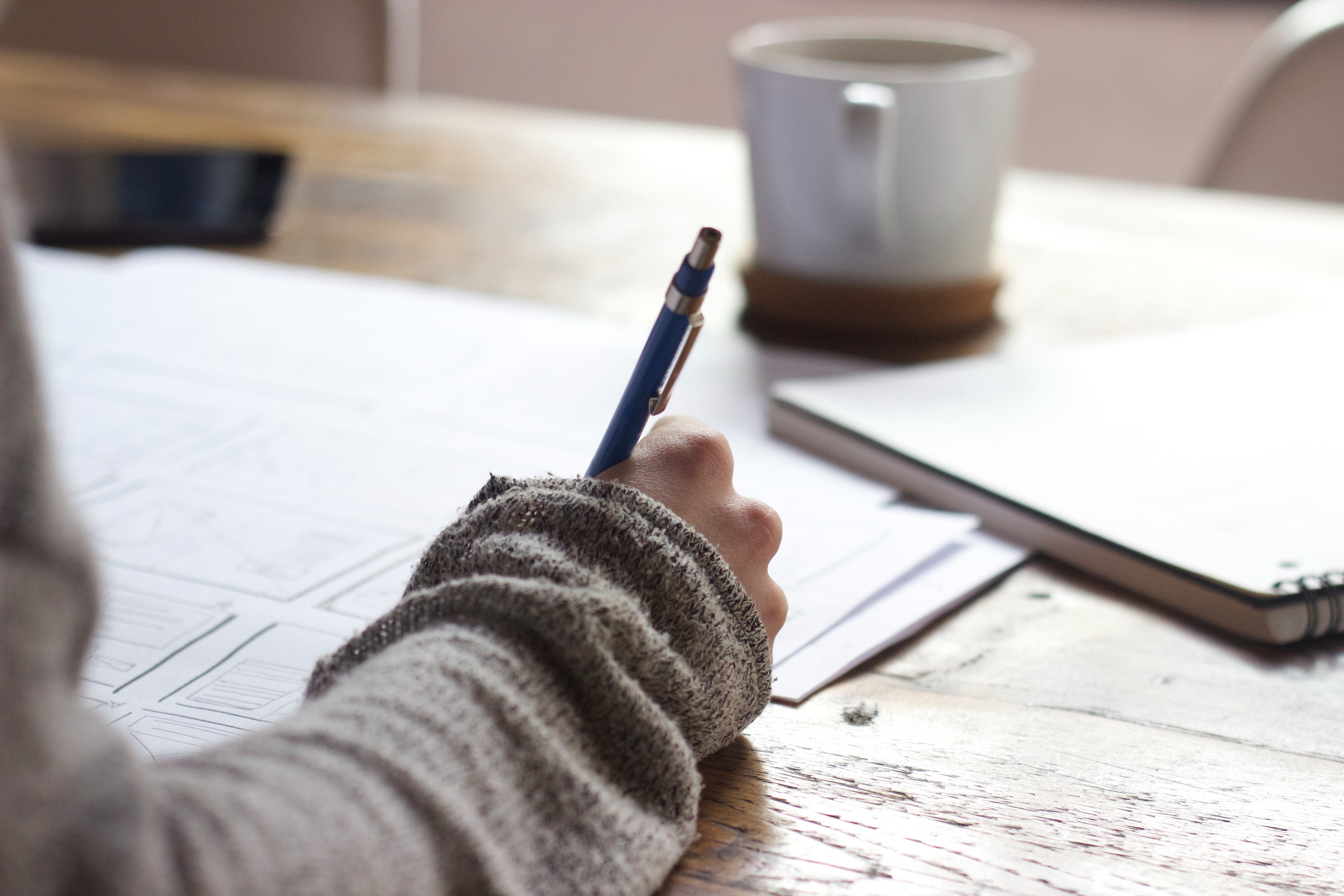How To Stay Productive During The Crisis: Emotional Intelligence and Mindfulness

The current situation has triggered different reactions in each of us, from feelings of despair to the urgent need to make something positive out of it.
Between all this, we also need to stay productive and keep working as efficiently as possible. The secret is not ignoring things and acting like everything is normal. It is about finding new habits that help us be productive in this new context. In this article we want to show how this can be achieved and how we at expertlead deal with the current situation.
What is Emotional Intelligence (EQ) and Mindfulness and how can they be of help?
Paul MacLean proposed a model that could help us understand the emotional reactions in ourselves called the “triune brain”. He proposes the coexistence of three types of “brains”, reptilian, mammal and human. The reptilian brain triggers our “survival mode”. It quickly responds to situations based on two alternatives, fight or run, with the sole purpose of keeping us alive. Being aware of this basic instinct can help us realize which state we are initially in. The mammal brain is our emotional brain. It builds upon the first brain’s reaction and it can trigger emotions like despair or anger. Acknowledging these feelings will help us understand our reactions and emotional states. The human brain is the one in charge of rational thinking. It is responsible for abstract thought, reasoning, and imagination. It can help us recognize the reactions of the two previous areas and make decisions that help us cope with them.
Emotional Intelligence (EQ) can help us recognize our emotions and help us manage them accordingly. This sets a first essential premise for these times: it is ok not to be ok, to be emotionally distressed. We cannot ask ourselves to be productive if we are taking care of a sick person or we are sick ourselves; we cannot act as if nothing happened and not take necessary precautions. However, being aware of our emotions can help us identify negative influences that can make us feel worse with no real reason.
Mindfulness is the ability to be fully present, fully aware of where we are, what we are doing and how we are feeling. In the current crisis, being mindful means being aware of the situation, how it affects us emotionally and those around us. Take time to think about ourselves and decide on strategies that can help set and achieve goals. As we suggested earlier, the current situation and uncertainty will affect us all in a different way. So, the magnitude and extent of our goals will be personal and based on our analysis of how we are and what we can do.
A roadmap to being productive
- Acknowledge your current situation: Recognize how this is affecting you, which things you cannot control and those you can. Accept the new rules and build new habits around them.
- Allow yourself not to be ok: This situation will affect you. As in any change, there is a crisis that comes from the loss of the status quo, of the way things were before. Therefore, it is ok if you are not feeling good or as motivated as before.
- Be aware of bad habits: Overexposure to the media and the news, for example, can have a negative impact on our emotions and other recently developed habits might be getting in the way of our productivity. Once we are aware of them, we can limit our exposure or replace them with others that influence us in a positive way.
- Identify what YOU need: We all learn and adapt at different paces, so avoid strong comparisons with other colleagues. Find your own way of living with this new framework. Design your own strategy and set your own pace based on what you feel and need. Listen to advice, but acknowledge you are unique and need to find what works FOR YOU.
- Set your own goals: Productivity has different meanings to each of us. If we need more time to cope with negative emotions, we can set ourselves smaller goals. If we feel more positive, we can set ourselves higher goals. The key factor here is to acknowledge what your current capacity is and what you can do. Start small, one step at a time.
Ideas to cope with the current situation
The main advice in these times is to think strategically and add things to your routine that make you feel better and increase your productivity. Here we just add some ideas that can help you when defining your strategy:
- Create a new routine, redefine habits, set boundaries.
- Get enough sleep. Commit to a wake-up time and start the day with conviction.
- Dress for the day. If you wear your “lazy Sunday outfit”, you will tell your mind to get ready for a lazy day. If you dress like you would on a productive day, this is what you will set your mind to.
- Choose an intention for the day / week. Tell yourself what you want to achieve and set a timeframe (but remember not to go above your capacity). Define your working space and your tasks for the day. Give each thing its time, place, and energy. Work smarter, not harder.
- Work on one single task. Use reminders and to-do lists and focus on one thing at a time. Do not burn out.
- Pause between tasks or whenever you feel overwhelmed. Allow yourself to do what you need to be productive. Identify side activities and distractions that are getting in your way.
- Wrap up the day. Enumerate accomplishments and results. Find something positive and focus on it.
- Define working hours and “me time”. Tell your mind when it is time to feel good and reward yourself.
- Ask for help or advice if you need it. Keep an open mind and listen to ideas from others. Analyze your fixed attitudes, mindsets, and listen to suggestions.
- Have time for longer and more frequent calls. Now that most of us are at home and less busy, it is a good opportunity.
- Keep a journal. There are various types of them, and they serve different purposes, from taking the time to reflect on your feelings and emotions each day (emotion maps, gratitude journal) to setting yourself objectives (intention journal, success visualization, personal roadmap).
What WE do at expertlead
Our team has also applied some of these ideas and come up with some of their own that help them be productive during these times. Here are some of their comments and experiences:
“I have a schedule for working times and breaks. I also have a dedicated working space, which I can leave when the working hours are done. In this way I can separate working time from “me time”. I avoid extending my working space to the couch or bed, for example, regardless of how comfortable they might seem”.
“I need a space that is tidy and organized. If there is chaos around me, I cannot concentrate”.
“I plan my day ahead and set my calendar so that I can block dedicated times for specific tasks. Make a list of things I want to finish during the day”.
“I try to workout in the morning before I start to work. I also try out new recipes and try to eat better. And I keep my sleeping schedule as normal as possible. Personally, I feel more productive when I have a healthier lifestyle”.
“I always keep music playing in the background. I find quiet rooms more distracting and unsettling. Music helps me stay focused and keeps me going”.
“I organize daily tasks before starting to work. I write a list and use visual cues to set priorities. During the workday, I also take time for video calls with my colleagues. We coordinate 5-10 minutes coffee chats, so that we feel less apart”.
“After work, I use the opportunity to video chat with family and friends. Also, I try to read books instead of watching something online, as it makes me feel better with myself.”
“I keep my morning routine as close as possible to the one I had before. I wake up early, have breakfast, and dress in office clothes. I prepare my morning coffee and then sit in front of my laptop. I also give lunch its time and space as I would in the office, instead of just having it somewhere in between”.
“I have identified the time of the day when I am more productive and distributed my tasks accordingly”.
Sources:
- Bridges, F. (2019). 6 Ways To Be The Most Productive Version Of Yourself. Forbes.
- Carmody, J., Baer, R. A., Lykins, E. L., & Olendzki, N. (2009). An Empirical Study of the Mechanisms of
- Mindfulness in a Mindfulness-Based Stress Reduction Program.
- JOURNAL OF CLINICAL PSYCHOLOGY, 613-626.
- Fuchs, E., & Flügge, G. (2003). Chronic social stress: effects on limbic brain structures.
- Journal of Physiology & Behavior, 417-427.
- Lorenz, T. (2020). Stop Trying to Be Productive. The New York Times.
- Pozin, I. (2013). 9 Habits Of Productive People. Forbes.
- Stahl, A. (2019). 4 Ways To Maximize Productivity At Work. Forbes.
May 2020 - 6 min read

Prof. Tamara Pawluk
Tamara is a professor in Intercultural Business Management and is finishing her PhD Thesis on Diversity Best Business Practices. She gained her practical experience as Talent Manager for IT Professionals at Accenture. In her role as the Head of Freelancer Management at expertlead Tamara is using her combined 11 years of university teaching and practical experience to support our freelancers in their career in the best possible way.
